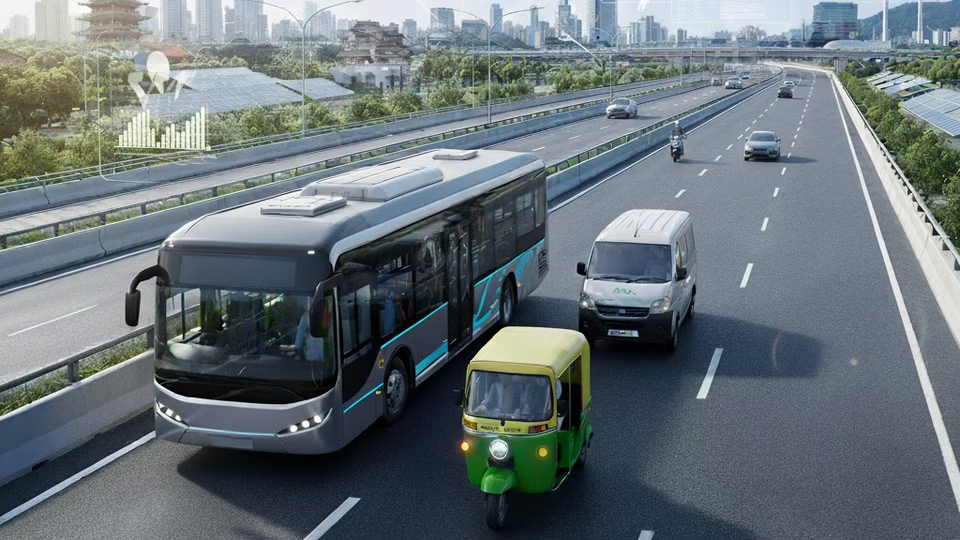News List
India’s Largest E-Bus Tender Deferred Again Under PM E-Drive Scheme

India’s ambitious electric mobility plan under the PM E-Drive scheme has hit another delay. The country’s largest e-bus tender, meant to deploy 10,900 electric buses across five major cities, has been deferred yet again due to a combination of infrastructural and financial roadblocks.
According to publicly available tender documents, the submission deadline—originally slated for August 12, 2025—was first extended to October 14, and has now been postponed to November 6. The repeated extensions highlight the challenges facing India’s push toward cleaner public transport, even as policy intent remains strong.
High costs and tough terms deter bidders
Industry insiders revealed that bus manufacturers and state transport agencies have raised concerns about the high cost of participation and stringent tender conditions. One of the key sticking points is the earnest money deposit (EMD)—over ₹312 crore—required to participate across all five cities. This massive upfront amount, they say, discourages wider competition and limits participation to a handful of financially strong firms.
“The earnest money requirement is unusually high and adds unnecessary financial pressure on manufacturers,” said a person familiar with the process. “When you combine that with the operational and compliance burdens, it becomes a tough proposition for many companies.”
Cities still lack e-bus infrastructure
Equally concerning is the lack of adequate charging and depot infrastructure across states. The tender, issued by Convergence Energy Services Ltd (CESL) in June, depends heavily on each state’s ability to provide charging points and maintenance facilities for the incoming fleet.
However, multiple states are yet to establish the required groundwork. Without ready infrastructure, busmakers face uncertainty about operational viability and turnaround times. “Until depots and chargers are in place, large-scale deployment remains theoretical,” said another official involved in the project.
The model: Buses owned by manufacturers
Under the Gross Cost Contract (GCC) model, the e-buses will be owned and maintained by the manufacturers, while state transport undertakings (STUs) will pay them on a per-kilometer basis for operation. This approach is designed to minimize upfront costs for state agencies while ensuring professional fleet management by private operators.
The current tender covers New Delhi, Bengaluru, Hyderabad, Ahmedabad, and Surat, all of which were chosen under the Ministry of Heavy Industries’ allocation earlier this year. Despite logistical challenges, the project is seen as a cornerstone of India’s effort to electrify public mobility and reduce emissions from urban transport.
No official explanation yet
Interestingly, CESL has not issued an official statement on the reasons behind the latest deferment. While industry observers point to the lack of readiness among states, others suggest that revisions to tender conditions might be under consideration to make participation more attractive.
The delay, however, adds to growing frustration among busmakers and policymakers who are eager to see momentum in India’s clean transport transition.
Government’s commitment to electric mobility
The deferment comes just months after Prime Minister Narendra Modi flagged off 200 electric buses in New Delhi on World Environment Day (June 5, 2025). The event, part of Delhi’s sustainable transport initiative, was seen as a symbolic milestone in India’s green mobility journey.
Officials at the Ministry of Heavy Industries continue to emphasize that the PM E-Drive scheme remains a flagship initiative, targeting faster adoption of electric vehicles across key urban centers. The scheme also aligns with India’s broader climate goals of cutting carbon emissions and reducing dependency on fossil fuels.
Road ahead
Despite the repeated delays, experts believe the tender could still transform India’s public transport landscape—provided the current structural issues are addressed. “The intent is there, but execution depends on state-level readiness,” said a transport policy analyst. “If the infrastructure bottlenecks are resolved, this could be a turning point for e-mobility in India.”
For now, the industry waits as the November 6 deadline approaches, hoping the government and CESL will make the necessary adjustments to kick-start the country’s largest e-bus rollout under the PM E-Drive banner.
